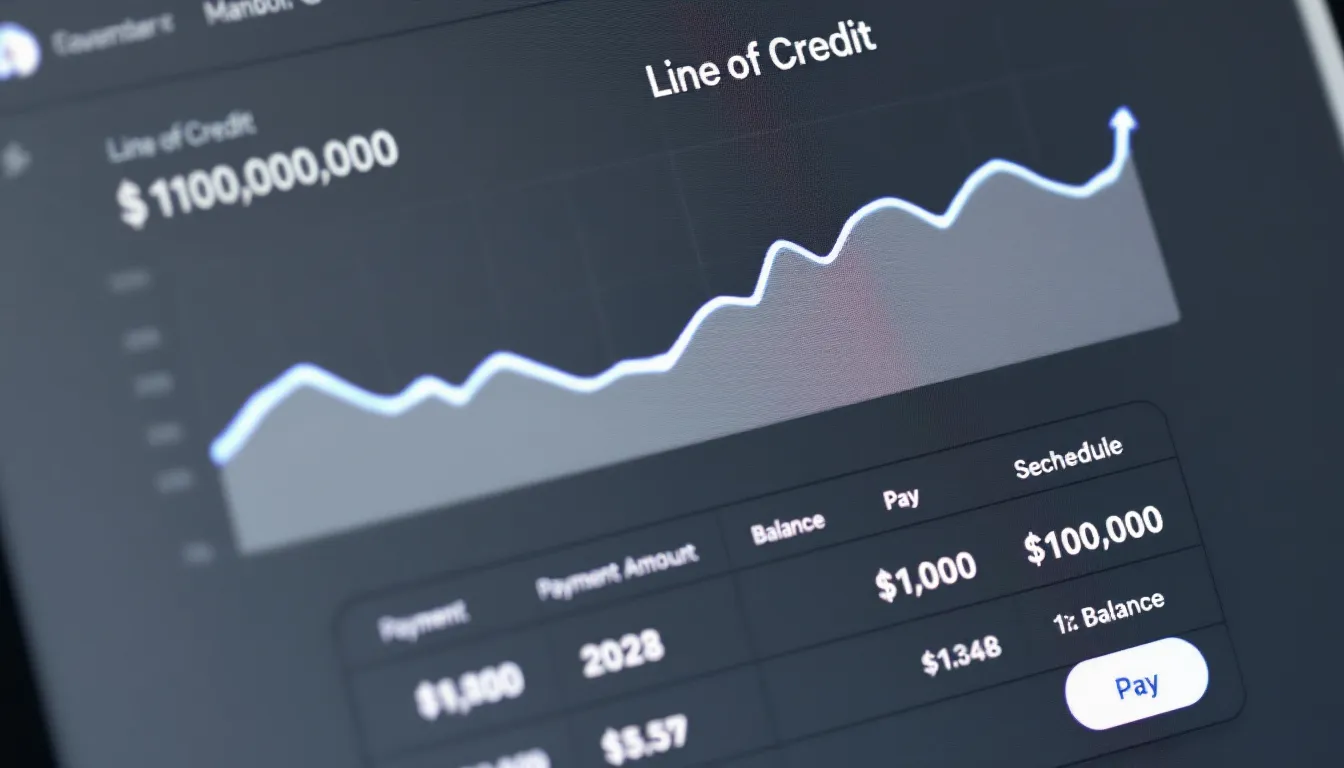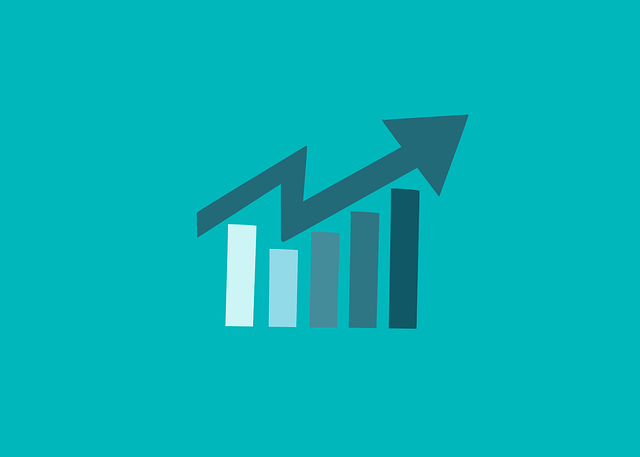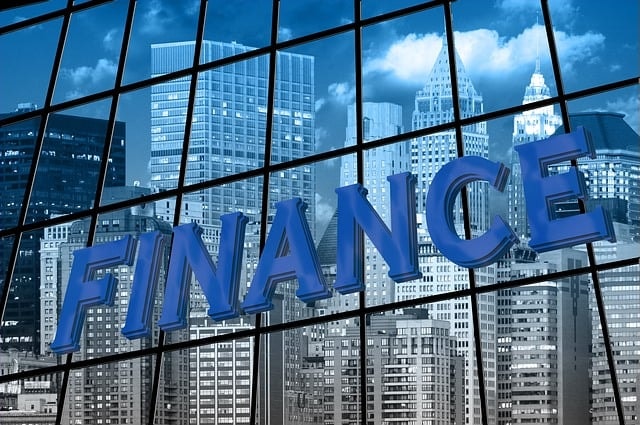What is a Business Line of Credit?
A business line of credit is a flexible financial tool that provides businesses with access to funds up to a predetermined credit limit, functioning similarly to a credit card. Unlike a traditional business loan, which provides a lump sum payout, a business line of credit allows borrowers to access funds as needed, offering quick access to capital when necessary.
It allows companies to borrow and repay funds continuously, making it ideal for meeting various expenses such as purchasing inventory, covering payroll, or managing cash flow. You only pay interest on the funds you use. This form of versatile financing helps manage cash flow effectively, cover unexpected costs, and sustain day-to-day operations.
Difference Between Personal and Business Credit
When applying for a business line of credit, it is crucial to distinguish between personal and business credit. While personal credit is tied to an individual’s finances, business credit pertains specifically to a company’s financial history.
How do I use an EIN instead of SSN to get Business Credit?
Most business lenders conduct a personal credit check and a business credit check for business financing, such as a line of credit. However, in some cases, you may be able to obtain a line of credit using only your federal Employer Identification Number (EIN).
An EIN is a unique nine-digit number issued by the IRS to identify a business for tax purposes. An EIN allows businesses to open bank accounts and apply for various licenses and permits. Businesses need an EIN to apply for Small Business Administration (SBA) loans, which require verification of the business’s legitimacy. An EIN is essential for businesses that have employees, operate as a corporation, or need to file certain tax returns. Getting an EIN also helps keep your business and personal finances separate.
This video explains what you should know about EINs:
Before starting this process, you should know it can be challenging to find lenders willing to approve lines of credit without checking your personal credit using your Social Security Number (SSN).
Additionally, you will need to have strong business credit with an established history of making on-time payments. Your EIN serves as the equivalent of an SSN for your business. When you apply for financing with your EIN, lenders review your business’s credit profile.
Many lenders have stricter revenue and time in business requirements than they would if you also use your personal credit. You will also need to separate your business finances from your personal finances.
Follow these steps to position your small business to get a line of credit with an EIN only.
Establish Your Business as a Legal Entity: The first step is to establish your business as a legal entity, which typically involves registering with your state. You can form your company as an LLC, a general partnership, a corporation, or another type of business.
Get Your EIN: Once you’ve established your business, the next step is applying for an EIN with the Internal Revenue Service (IRS). Obtaining an EIN is a straightforward process, and you can apply online at the IRS website.
Open a Business Bank Account: Opening a bank account in your business’s name further separates your personal and business finances. Most lenders will want to review business bank account statements to verify cash flow when you apply for a business line of credit or loan.
Build Business Credit: Next, you’ll want to establish and build a business credit history. You can take out loans in your business’s name using your personal credit score. Another option is to apply for supplier credit, but ensure the vendor(s) you work with report to the major business credit bureaus. Once your business has a solid credit history, you’ll have more luck applying for an EIN-only line of credit.
Gather Your Documents: When applying for a line of credit or any other form of business financing using your EIN only, making your application as strong as possible is essential. Without a personal credit check, lenders require significant documentation. This can include business bank statements, business registration documents, financial statements, and a business plan.
Apply for a Business Line of Credit: Once you’ve completed the steps above, it’s time to apply. This includes finding a lender that offers the product you need and where you meet the eligibility requirements.
Is it difficult to get a Business Line of Credit with EIN Only?
Obtaining a business line of credit solely using your EIN can be challenging. Most lenders and credit card issuers want to ensure the creditworthiness of the individual business owner(s) by conducting personal credit checks. A strong business credit profile is likely to result in better loan terms and lower interest rates.
In particular, new and younger businesses with unproven revenue streams are unlikely to secure business financing with an EIN only. More established businesses with employees and high revenue have more options for EIN-only financing.
Business lines of credit with EIN only don’t require a personal credit check, which benefits small business owners as it won’t impact their credit history. However, most lenders that are willing to approve a business line of credit using EIN only still require a personal guarantee. That means the lender can pursue your personal assets if you default.
Business Credit Cards
One of the more accessible ways to establish a business line of credit is by opening a business credit card. Most small business credit cards can help you build business credit if payments are made on time.
Small business credit cards often require a personal guarantee and credit check, especially for new or smaller businesses. Most credit card applications are less stringent than those for a bank- or alternative lender-issued line of credit.
Role of Business Credit Bureaus
Business credit bureaus, such as Experian Business, Equifax Business, and Dun & Bradstreet, collect and maintain data on the financial records of small businesses. This includes payment history, outstanding debts, and public records. Paying bills on time helps build a strong business credit history.
Lenders and suppliers use this information to assess the risk of extending credit to a business. Small businesses can enhance their creditworthiness by making timely payments and managing their finances responsibly, thereby making themselves more attractive to potential lenders.
How do I qualify for a Business Line of Credit with EIN Only?
Qualifying for a business line of credit with EIN only requires a strong business credit profile and financials. Let’s delve into the key factors influencing your eligibility and how to improve your chances.
Strong Business Credit Score
Business credit scores assess a company’s creditworthiness for lenders and suppliers. Factors like payment history, credit utilization, and length of credit history determine the score.
A higher score means lower risk and better financing terms. Businesses should monitor and maintain their credit scores by making timely payments, keeping low balances, and managing finances responsibly to ensure access to necessary funding and resources for growth.
Time in Business
Lenders typically prefer working with established businesses that have a track record of successful operation. A longer history of consistent revenue and effective financial management demonstrates stability and reliability, making these businesses lower risk.
As a result, they are more likely to be approved for a line of credit than newer businesses. Small businesses should focus on building a strong track record and demonstrating their ability to manage finances effectively to increase their chances of obtaining funding.
High Annual Revenue
Having high revenue is crucial when applying for a business line of credit with EIN only. High revenue demonstrates to the lender that your business is financially stable and capable of repaying the credit line.
It also proves that your business has a consistent cash flow, reducing the risk for the lender. Additionally, a high revenue can help you qualify for a more substantial credit limit, providing your business with greater financial flexibility and opportunities for growth.
How do I create a successful Business Line of Credit Application with EIN Only?
A business line of credit with EIN only is a flexible borrowing option that allows businesses to access funds using only their Employer Identification Number (EIN), thereby bypassing personal credit checks. This means that the lender evaluates the creditworthiness of the company based on its EIN, which can be highly beneficial for business owners who prefer to keep their personal credit separate.
Putting together a successful application for a business line of credit using only your EIN requires more detailed information than using a personal credit check. Here are some tips to help you put together the strongest application possible. Ensure your business is legally registered and has an EIN.
Maintain Your Business Credit
As mentioned, your business credit is a significant factor in determining your eligibility for financing with your EIN. Commercial lenders and business credit card issuers must rely solely on your business credit score. It’s essential not only to establish business credit but also to maintain it.
Start by opening accounts with vendors or suppliers that report payments to business credit bureaus. Suppliers or vendors might offer credit terms, allowing businesses to pay later for goods or services, which can help manage cash flow without impacting personal credit. Net-30 accounts offer businesses 30 days to pay off their balances before interest accrues and often do not require personal credit checks. Regularly monitor your business credit reports and take steps to raise your business credit scores wherever possible.
Put Together a Business Plan
When applying for a business line of credit with EIN only, having a well-thought-out business plan and a realistic budget is crucial. Lenders will want to see that you clearly understand your business’s financial needs and how you plan to use the funds from the line of credit.
Your business plan should outline your company’s goals, target market, competition, and financial projections. It should also demonstrate how the funds from the line of credit will be used to support and grow your business.
Additionally, having a realistic budget shows lenders that you have carefully considered your financial needs and are prepared to manage the funds responsibly. This can help instill confidence in lenders and increase your chances of securing a business line of credit with EIN only.
Understand & Meet Lender Requirements
When applying for a business line of credit, it’s crucial to understand and meet the specific requirements set by the lender. These requirements can vary significantly among different lenders, so it’s essential to conduct thorough research and be prepared to meet their specific criteria. Some lenders may prioritize a strong credit score and a solid financial history, while others may emphasize the business’s revenue and cash flow.
Additionally, specific lenders may require collateral or a personal guarantee, while others may not. Lenders will assess your business’s financial health, so keep detailed records of revenues and expenses. Many no credit check loans rely on revenue and business performance over personal credit history. By understanding the specific requirements of each potential lender, you can tailor your application and increase your chances of securing the business line of credit that best fits your needs.
Prepare Documentation
As mentioned, applying for a business line of credit with EIN only typically requires more exhaustive documentation than when using your SSN. Be prepared with the following documents:
- Business financial statements (balance sheet, profit and loss statement, cash flow statement, etc.).
- Business tax returns.
- Business plan.
- Business bank statements.
- Business legal documents.
- Business credit history.
What are the benefits of an EIN Only Business Line of Credit?
Obtaining a business line of credit with an EIN only is advantageous as it allows for a clear separation between personal and business finances. Using an Employer Identification Number (EIN) to secure credit, business owners can avoid intertwining personal funds with their company’s financial activities.
By utilizing an EIN-only line of credit, business owners can protect their personal credit scores from potential negative impacts. Regular use and timely repayment of the business line of credit can help establish and strengthen the company’s credit history.
One significant benefit of securing an EIN-only business line of credit is the opportunity to establish a robust business credit profile. This separate credit history enables businesses to build a strong foundation for future financial endeavors, such as obtaining larger loans or negotiating favorable terms with vendors and suppliers.
Only using your EIN to apply for a business line of credit means lenders won’t check your personal credit report. This can be beneficial for credit-challenged small business owners. In addition, it means your credit score won’t take a hit for a hard credit check.
What are the drawbacks of an EIN Only Business Line of Credit?
The most significant drawback is that small business owners have fewer options for lenders or credit card issuers willing to approve applications with only your EIN. Most lenders will want to check both your personal credit and your business credit.
While opening a business credit line using your EIN helps protect your personal finances and credit history, many lenders still require a personal guarantee. As mentioned, that means your personal assets are at risk if you default.
Without checking your personal credit scores, lenders might view your application as high-risk. This can lead to higher interest rates, increased fees, and lower approval rates.
EIN-Only Business Line of Credit Pros & Cons
Pros:
- Separate personal and business finances.
- Helps establish a strong business credit profile.
- No hard credit check in your personal credit history.
- Easier to get approved for credit-challenged business owners.
Cons:
- Few lenders will consider an EIN-only application.
- Lower approval rates.
- Potential for higher interest rates.
- Still requires a personal guarantee in most cases.
Frequently Asked Questions
Here are the most common questions about how to get a business line of credit with EIN only.
Can I get a Business Credit Card with EIN Only?
Yes, it’s possible to obtain a business credit card using only your EIN without requiring a personal guarantee or SSN. You’ll likely have greater approval odds for a business credit card than a lender-issued line of credit.
Some issuers allow applications using only an EIN, although they may have stringent requirements. Secured cards enable businesses with limited or poor credit histories to deposit an amount for security with the credit card company, helping to ensure timely repayment.
Secured business credit cards require a cash deposit that serves as the credit limit, making them accessible to businesses with limited credit history. Additionally, many issuers will let you include household income on your application for a business credit card, potentially increasing your approval odds.
Researching Various Business Credit Card Issuers
Research different business credit card issuers to identify one that best suits your company’s needs and offers favorable terms. Compare factors such as interest rates, rewards programs, annual fees, and introductory offers to determine which option is best for you. Look for a card issuer that aligns with your business goals and financial requirements.
Corporate Credit Cards
Numerous major business credit card issuers offer corporate cards that rely solely on the business’s credit profile rather than the owner’s personal credit history. This means that your business’s strong credit standing can be the key to securing a corporate card.
- Fuel Cards: Enable businesses to refuel their vehicles. Companies may use their business profile to qualify rather than relying on personal credit. Fuel cards can be used to purchase gas for business vehicles and often do not require personal credit checks.
Can I qualify for a higher Credit Limit using just my EIN?
The amount of credit available through an EIN-only application depends on various factors, including the business’s financial stability and performance. Lenders typically evaluate revenue, profitability, and industry trends to determine the maximum amount they can extend as a line of credit.
Does the industry impact approval for a Business Line of Credit with EIN Only?
While eligibility criteria vary among lenders, most businesses across different industries can apply for a business line of credit using their EIN. However, certain high-risk industries might encounter more stringent requirements due to their nature or market volatility.
What are my alternatives to an EIN-only Business Line of Credit?
Getting approved for any form of business financing using only your EIN is difficult, as it only allows lenders to review your business credit history. You might consider a non-financing option, such as crowdfunding, which enables businesses to raise money from multiple investors or community members, providing an alternative to traditional financing. Some business owners use personal credit cards, but these won’t allow you to start building business credit.
The most accessible alternative is to use your SSN to facilitate a personal credit check for business loan applications. Strong personal credit can help significantly improve your chances of approval. Some online business loans may have lower minimum credit requirements than traditional banks. Several lenders offer startup business loans that do not require a personal credit check.
This means online business loans and alternative funding solutions might be possible with an EIN only.
Accounts Receibvable Factoring
Invoice factoring or accounts receivable factoring, allows the company to convert unpaid invoices into immediate working capital. It is a business transaction where the funder (called a Factor or factoring company) purchases unpaid invoices at a discount in exchange for an immediate advance of the invoices’ value, typically 75%-90%.
Invoice financing may not require a personal credit check. Since repayment comes from the customers who owe the invoice amount, factoring companies typically evaluate their credit more closely than the business owner who applies.
Merchant Cash Advances
Merchant cash advances offer fast funding in the form of a lump sum advance against future sales for businesses with strong sales volume. MCAs provide lump sums that are repaid with a percentage of credit card sales. However, merchant cash advances usually come with higher interest rates than traditional loans.
Most MCA funders are lenient on credit scores because repayment comes directly from future business transactions. Cash flow is often the most critical determining factor in merchant cash advances.
Other Small Business Loans
Using both personal and business credit opens up more financing options. You might be interested in one of the following small business loans:
- Bad credit business loans
- Business loans for women
- Business term loans
- Equipment financing
- Revenue-based business loans
- SBA loans
- Working capital loans
- ERC advance
Some lenders offer startup business loans with fewer than two years in business and low or no personal credit score requirements. Startup business loans can provide opportunities for new businesses to secure funding using only an EIN. Microloans are smaller loans often provided by nonprofits that focus on supporting small-business owners with flexible qualification requirements. Many no credit check loans rely on the value of outstanding invoices for approval, making it easier for businesses to be approved without strong credit.
How to Get a Business Line of Credit with EIN Only – Final Thoughts
Securing a business line of credit using only your EIN is achievable with diligent preparation. By building a strong business credit profile and exploring various financing options, your company can access the funds it needs while keeping personal and business finances distinct.
Using just an EIN helps keep your personal and business finances separate while protecting your consumer credit scores. However, most business financing options, including lines of credit, will require a personal credit check.
Contact us if you have more questions about EIN-only lines of credit or to apply for a small business loan. Our alternative business funding experts can help you find the most advantageous financing options for your business goals.















